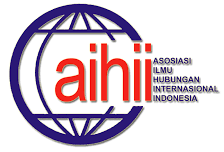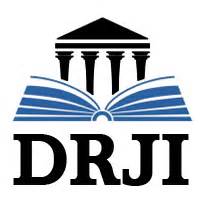Upaya UNESCO dalam Menekan Angka Buta Huruf di Sudan Selatan dalam Rangka Implementasi SDG
Abstrak
Sudan Selatan merupakan negara yang memiliki tingkat iliterasi tertinggi di Sub-Sahara. Menurut UNESCO, Sudan Selatan merupakan negara ke-3 di dunia dengan tingkat angka buta huruf orang dewasa terendah. Data ini membuktikan bahwa angka buta huruf di Sudan Selatan menjadi permasalahan yang memerlukan perhatian khusus. Tercatat 2,8 juta anak-anak berhenti sekolah disebabkan oleh kurangnya kemampuan guru dalam mengajar, fasilitas yang tidak memadai, kelaparan, konflik, perubahan iklim, pernikahan dini, kurangnya mobilitas dan alat bantu bagi siswa disabilitas. Isu ini mendorong pemerintah dan organisasi internasional untuk meningkatkan kualitas pendidikan melalui usaha menekan angka buta huruf di Sudan Selatan sebagai upaya implementasi SDG 4. Dengan menggunakan pendekatan kualitatif dan studi pustaka sebagai metode pengumpulan data, artikel ini ditulis untuk menganalisis peran UNESCO dalam menekan angka buta huruf di Sudan Selatan sebagai salah satu upaya implementasi SDG 4. Untuk memahami dan menjelaskan isu tersebut, penulis menggunakan konsep Sustainable Development Goals 4.6 dan konsep organisasi internasional. Berdasarkan studi ini, penulis menemukan bahwa UNESCO turut melakukan upaya melalui berbagai agenda dengan tujuan mendorong kualitas pendidikan di Sudan Selatan. Upaya UNESCO mendorong implementasi SDG 4.6 yang memiliki fokus terhadap peningkatan angka literasi dan numerasi masyarakat.
South Sudan has the highest illiteracy rate in Sub-Saharan Africa. According to UNESCO, South Sudan has the world's third-lowest adult illiteracy rate. This statistic demonstrates that the illiteracy rate in South Sudan is a serious issue. 2.8 million children have dropped out of school owing to a lack of teaching skills, poor facilities, starvation, violence, climate change, early marriage, and a lack of mobility and assistive equipment for students with impairments. This problem urges the government and international organizations to enhance the quality of education in South Sudan by reducing illiteracy as part of the implementation of SDG 4. By using a qualitative approach and literature studies as data collection methods, this article was written to analyze UNESCO's role in reducing illiteracy in South Sudan as part of SDG 4 implementation. To understand and explain that issue, the authors use Sustainable Development Goals 4.6 concept and the international organization concept. Based on this study, the authors found UNESCO is also working to improve the quality of education in South Sudan through various programs. UNESCO's efforts to promote the implementation of SDG 4.6, which focuses on improving literacy and numeracy rates.
Kata Kunci
Teks Lengkap:
PDFReferensi
Akkari, A. (2015). Education in the Middle East and North Africa. International Encyclopedia of the Social & Behavioral Sciences, 210–214. https://doi.org/10.1016/B978-0-08-097086-8.92149-4 https://www.sciencedirect.com/science/article/pii/B9780080970868921494
Archer, C. (2001). International Organisations (Third Edition ed.). London: Routledge. https://doi.org/10.4324/9780203192276
Archer, C. (2015). International organizations. Routledge. https://books.google.co.id/books?hl=en&lr=&id=aRgcBQAAQBAJ&oi=fnd&pg=PP1&dq=int ernational+organizations&ots=0Mv2bQHA8G&sig=mk5GdgdD3jd_Ths-JS-aLrcgo4E&redir_ esc=y#v=onepage&q=international%20organizations&f=false
Barnett, M., & Finnemore, M. (2004). Rules for the world: International organizations in global politics. Cornell University Press.
Creswell, J. W. (2009). Research Design: Qualitative, Quantitative, and Mixed Methods Approaches (3rd ed.). SAGE Publications.
Ferguson, T., & Roofe, C. G. (2020). SDG 4 in higher education: Challenges and opportunities. International Journal of Sustainability in Higher Education, 21(5), 959-975. https://www.emerald.com/insight/content/doi/10.1108/IJSHE-12-2019-0353/full/html
Government of South Sudan. (2012). General Education Act, 2012. Government Printer.
Hák, T., Janoušková, S., & Moldan, B. (2016). Sustainable Development Goals: A need for relevant indicators. Ecological indicators, 60, 565-573. https://www.sciencedirect.com/science/article/pii/S1470160X15004240
Heugh, K. (2007). Language and literacy issues in South Africa (Doctoral dissertation, Multilingual matters). https://www.researchgate.net/publication/291881611_Language_and_literacy_issues_in_South _Africa
Impact Pool. (2022). South Sudan education crisis: Challenges and opportunities. Impact Pool. https://www.impactpool.org
Jogwu, C. N. (2010). Adult Illiteracy: The Root of African Underdevelopment. Education, 130(3). https://web.s.ebscohost.com/ehost/pdfviewer/pdfviewer?vid=0&sid=c43ffd79-b599-4961-ac78 -8eabcad7b736%40redis
Katila, P., Colfer, C. J. P., De Jong, W., Galloway, G., Pacheco, P., & Winkel, G. (Eds.). (2019). Sustainable Development Goals. Cambridge University Press. https://books.google.co.id/books?hl=en&lr=&id=723CDwAAQBAJ&oi=fnd&pg=PR9&dq=su stainable+development+goals&ots=JK_CVu74ZX&sig=t3KO8S-IHoXmVkN-BtKz19ACgyI &redir_esc=y#v=onepage&q=sustainable%20development%20goals&f=false
Khuluvhe, M. (2021). Adult illiteracy in South Africa. Pretoria: South African Department of Higher Education and Training. https://www.dhet.gov.za/Planning%20Monitoring%20and%20Evaluation%20Coordination/Fac t%20Sheet%20on%20Adult%20Illiteracy%20in%20South%20Africa%20-%20March%20202 1.pdf
Maphalala, T. (2015, October 13) South Sudan Celebrates Its First Comprehensive Curriculum.https://www.globalpartnership.org/blog/south-sudan-celebrates-its-first-comprehen sive-curriculum
Ministry of Education, Science and Technology. (n.d.). Curriculum Framework South Sudan. https://www.curriculumfoundation.org/blog/wp-content/uploads/SS-Curriculum-Framework.pdf
Unterhalter, E. (2019). The many meanings of quality education: Politics of targets and indicators in SDG 4. Global Policy, 10, 39-51. https://doi.org/10.1111/1758-5899.12591https://onlinelibrary.wiley.com/doi/full/10.1111/1758- 5899.12591
Shanks, G., & Bekmamedova, N. (2018). Case study research in information systems. Research Methods, 193–208. doi: 10.1016/B978-0-08-102220-7.00007-8
Skårås, M., Carsillo, T., & Breidlid, A. (2020). The ethnic/local, the national and the global: Global citizenship education in South Sudan. British Journal of Educational Studies, 68(2), 219-239.
Sugiyono. (2013). Metode Penelitian Kuantitatif, Kualitatif dan R&D. Penerbit Alfabeta.
UNESCO. (2008). Education for all global monitoring report 2008: Education for all by 2015 - Will we make it? UNESCO. https://unesdoc.unesco.org/ark:/48223/pf0000187279
UNESCO. (2015). Incheon Declaration and Framework for Action for the implementation of Sustainable Development Goal 4. UNESCO. https://unesdoc.unesco.org/ark:/48223/pf0000232205
UNESCO. (2017). Education for sustainable development goals: Learning objectives. UNESCO. https://unesdoc.unesco.org/ark:/48223/pf0000247444
UNESCO. (2017). Global Education Monitoring Report 2017/18: Accountability in education – Meeting our commitments. UNESCO. https://unesdoc.unesco.org/ark:/48223/pf0000262047
UNESCO. (2018). UIS statistics in brief: Literacy rates. UNESCO Institute for Statistics. http://uis.unesco.org/en/topic/literacy
UNESCO. (2020, September 15). South Sudan commemorates International Literacy Day (ILD). https://www.unesco.org/en/articles/south-sudan-commemorates-international-literacy-day-ild
UNESCO Institute for Statistics. (2020). Literacy rates in South Sudan [Data file]. Retrieved from http://uis.unesco.org/en/topic/literacy
UNICEF. (2020). The state of the world's children 2020: Children, food and nutrition. UNICEF. https://www.unicef.org/reports/state-of-worlds-children
UNICEF. (2021). Education in South Sudan Briefing Note. https://www.unicef.org/southsudan/documents/education-briefing-note
United Nations. (2015). Transforming our world: The 2030 agenda for sustainable development. United Nations.
World Bank. (2015). South Sudan overview. The World Bank. https://www.worldbank.org/en/country/southsudan/overview
World Bank. (2021). Education in Sudan: Challenges and opportunities. The World Bank. https://www.worldbank.org/en/country/southsudan/education
World Vision. (2021). The Impact of South Sudan’s Crises on Education. https://www.wvi.org/sites/default/files/2022-06/Education%20-%20South%20Sudan%20Case %20Study%202022_Final_compressed.pdf
DOI: https://doi.org/10.24198/padjir.v7i2.61771
Padjadjaran Journal of International Relations Terindeks Di:







21.png)










